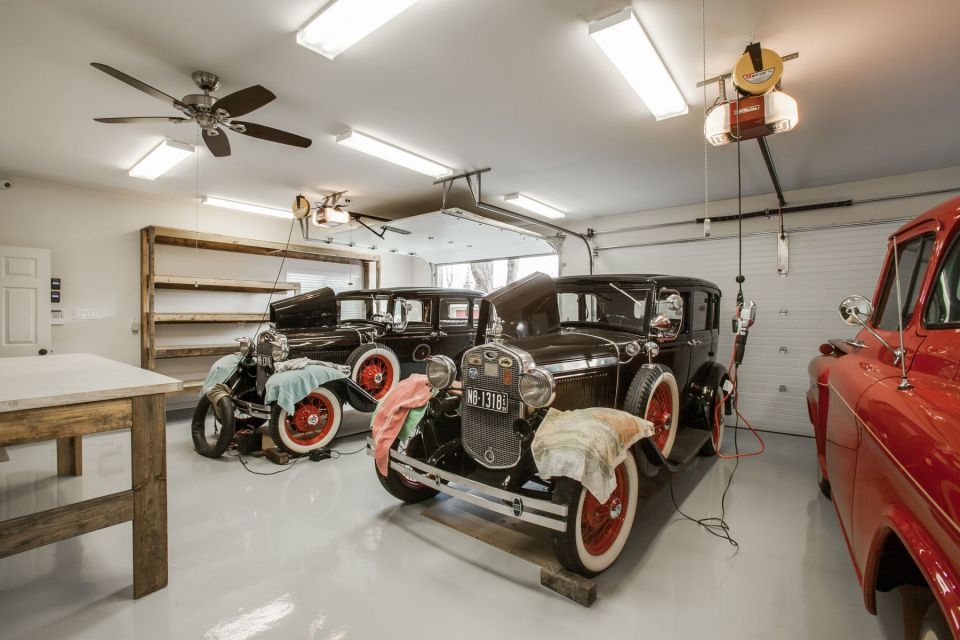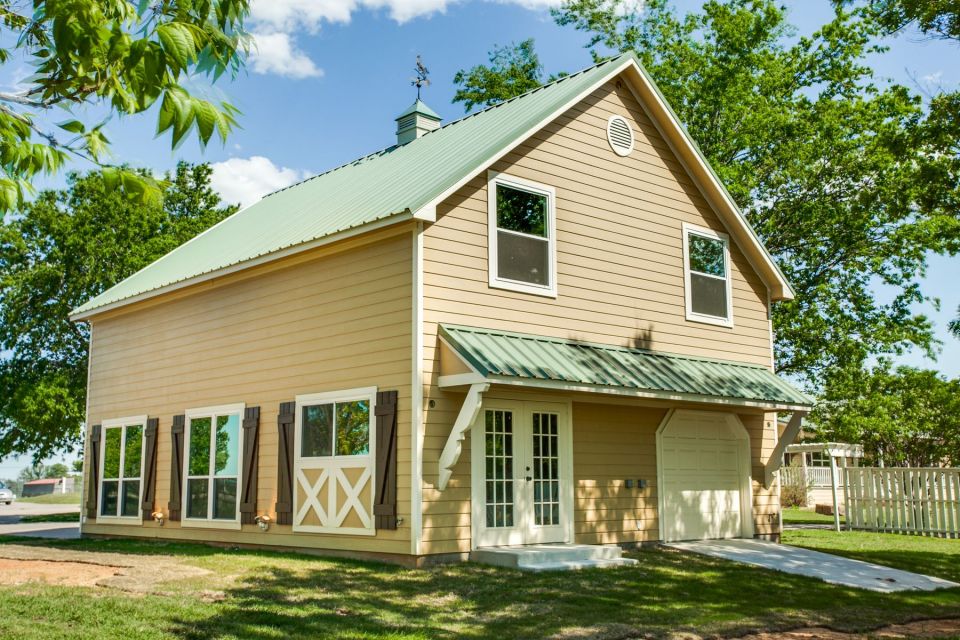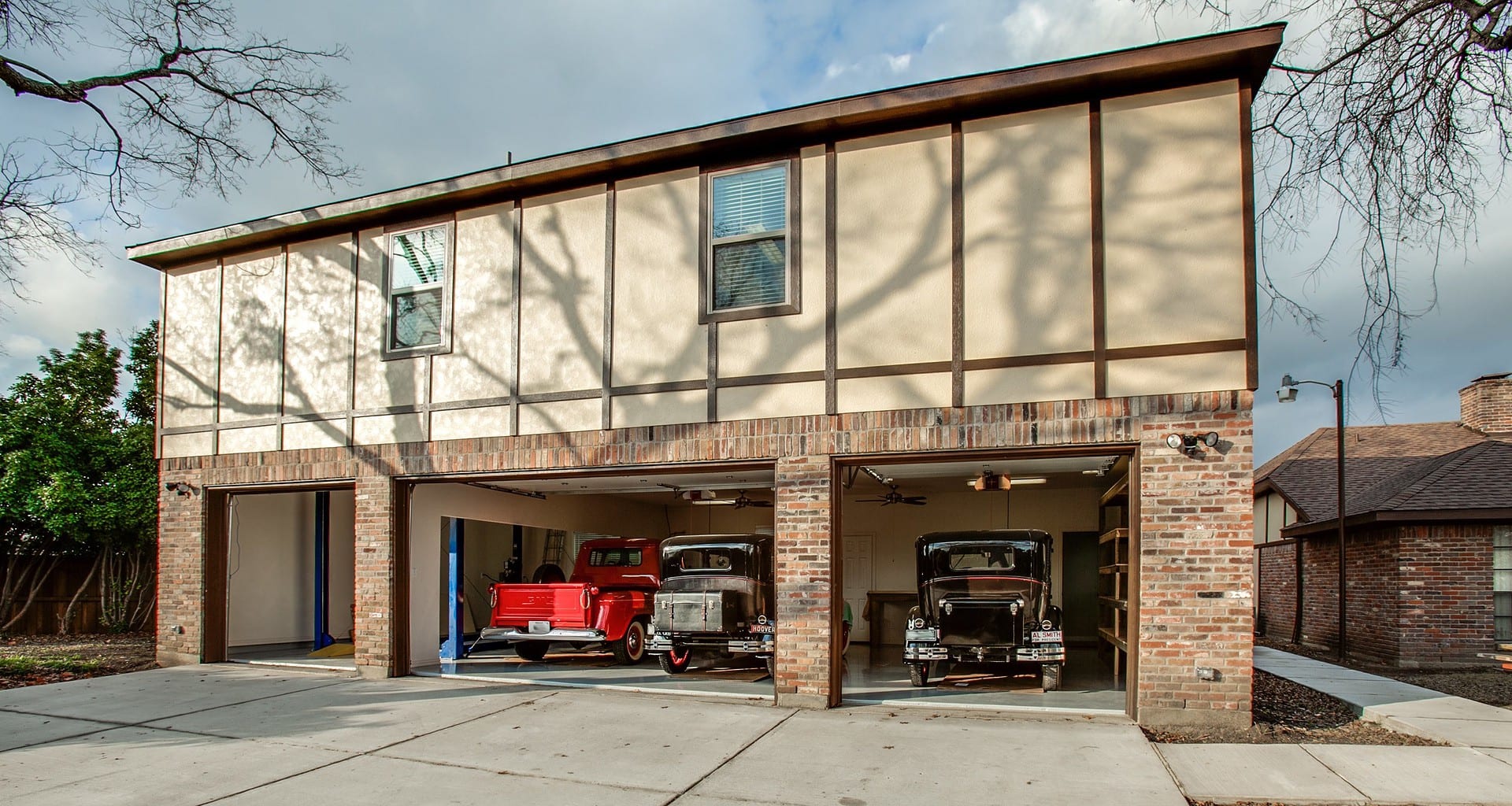Adding or renovating a garage is one of the most practical ways to improve a home in the Dallas-Fort Worth area. A well-designed garage creates valuable storage space and can even serve as a flexible extension of your living area. Homeowners who are planning a renovation often face one important decision: should the garage be attached or detached?
Keep reading to understand how the choice between an attached garage and a detached garage can influence your home’s functionality, curb appeal, and long-term value.
Understanding the Difference Between Attached and Detached Garages
Before weighing the pros and cons, it is helpful to understand how attached and detached garages differ in structure and function. Each design comes with its own set of practical considerations that affect convenience, cost, and long-term usability.

What is an Attached Garage?
An attached garage is built as part of the main structure of a home, sharing one or more walls with the living space. Access is usually provided through a door that leads directly into a hallway, kitchen, or utility room. This design makes attached garages an integrated part of daily life, offering convenience and efficiency.
Advantages of Attached Garages
- Everyday convenience: Walking directly into the home without exposure to rain, summer heat, or winter cold is a major benefit for families in North Texas.
- Lower construction costs: Since the garage ties into existing walls and utilities, the initial cost is often less than building a freestanding structure.
- Weather protection: In DFW’s climate, protecting vehicles from sun damage, hail, and sudden storms can save homeowners from costly repairs.
- Expansion opportunities: An attached garage provides a foundation for future upgrades, such as converting it into a living space, mudroom, or home office.
Disadvantages of Attached Garages
- Design limitations: The garage must be built in a way that works with the existing structure, which can restrict placement and reduce flexibility in size.
- Noise and odors: Vehicle sounds, fumes, and stored items may be noticeable inside the home if proper ventilation and insulation are not included in the design.

What is a Detached Garage?
A detached garage is a freestanding structure built separately from the home. It can be placed near the house, at the back of the lot, or even designed to create a courtyard-style layout. Because it is not bound by the dimensions of the existing home, it offers more freedom in terms of design and size.
Advantages of Detached Garages
- Flexible design options: Because it is built independently, a detached garage can be positioned anywhere on the property, sized according to needs, and styled to complement the home.
- Versatility of use: Detached garages are often converted into multipurpose spaces such as workshops, yoga studios, gyms, or guest suites, adding long-term value.
- Cleaner separation: Keeping the garage separate prevents odors, clutter, and noise from spilling into the main living area.
Disadvantages of Detached Garages
- Higher construction costs: Building a freestanding structure typically requires more materials, a new foundation, and separate utility connections.
- Accessibility issues: Traveling outside to reach the garage can feel inconvenient during storms, extreme heat, or late at night.
Key Structural and Functional Differences
The primary difference between an attached and detached garage lies in the way the garage connects to the home. Attached garages share infrastructure such as walls, utilities, and roofing, which can reduce costs and simplify construction. Detached garages stand alone and require independent foundations, electrical work, and sometimes plumbing. While this increases construction complexity, it also allows for greater design flexibility and creative use of space.
👉 Learn more about our Garage and Workshop Services or explore Creative Ways to Upgrade Your Garage for additional ideas and inspiration.
Making the Right Choice for Your Home Renovation
With both options offering distinct benefits, the right choice depends on your priorities as a homeowner. A thoughtful assessment of lifestyle needs, long-term goals, and property layout will help ensure your garage serves you well today and in the future.
Some important questions to consider include:
- Accessibility: Do you want direct entry into your home, or are you comfortable with walking outdoors to reach the garage?
- Storage and hobbies: Will the garage only protect vehicles, or do you plan to use it for a workshop, gym, or other activities?
- Property value: Which option will improve the curb appeal and resale potential of your home in your neighborhood?
- Budget: How much flexibility do you have for construction and utilities?
Working with a professional remodeling contractor can help you evaluate these factors and design a garage that fits both your property and your lifestyle. At DFW Improved, we have built a wide range of custom solutions, from attached garage workshops in Plano to detached garage shops, giving homeowners practical options that reflect their unique needs.
Conclusion
The decision between an attached and detached garage shapes the way you use your home, influences its design, and impacts its value for years to come. By weighing the pros and cons of each option and consulting with an experienced remodeling team, you can choose the garage that enhances your lifestyle while adding long-term value to your property.

